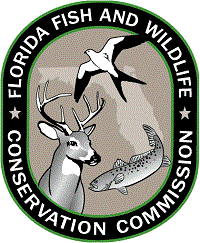Holidays Bring Florida Fishing Bonuses

Thanksgiving is a uniquely American holiday and for many people represents their only four-day holiday. So what better time to offer license-free fishing days? Friday, Nov. 29, will be a license-free freshwater fishing day, followed by a saltwater license-free day on Nov. 30.
To round out the gift-giving, Saturday, Dec. 28, was also designated as a license-free freshwater fishing day.
In 2013, the Legislature authorized the Florida Fish and Wildlife Conservation Commission (FWC) to offer four additional license-free fishing days annually. FWC Commissioners subsequently implemented a long-term strategy to encourage introducing new anglers to recreational fishing, and to give those who haven’t been fishing recently another incentive to enjoy time on the water. Since the dates for some of these long-term options had already passed in 2013, they also picked the one-time-only dates mentioned above to make sure anglers got all the free-days the Legislature authorized.
For 2014 and beyond, the eight days will fall on the same weekend days from year to year, allowing anglers to plan in advance and businesses and nonprofit groups to schedule events around these fishing license holidays. Recurring days for freshwater will be the first Saturday and Sunday in April and the second Saturday and Sunday in June. For saltwater, the dates will be the first Saturday and Sunday in June, the first Saturday in September, and the Saturday following Thanksgiving.
These dates were planned around holiday weekends and events, such as National Fishing and Boating Week (www.TakeMeFishing.org/NFBW), which gets significant media coverage by promoting boating and fishing nationwide. The website is available to cross-promote local fishing or boating events as well.
In addition, VISIT FLORIDA, which promotes Florida as the “Fishing Capital of the World” (www.FishingCapital.org), designates June as Fishing Month.
April is among the best freshwater fishing months and the weather tends to be comfortable. It is a great time to host educational and outreach events that promote recreational fishing and conservation stewardship.
Florida’s license-free fishing days are the perfect opportunity for people to try, or introduce a friend to, some of the finest fishing in the world. Florida’s recreational freshwater and saltwater fishing industry has an $8.9 billion economic impact and supports nearly 80,000 jobs. Events like these help grow the industry even more.
Businesses with fishing ties such as outdoor retailers, fishing guides, marinas and outfitters; nonprofits that work with youth and conservation groups; and local governments promoting fishing in local waters will all benefit. The FWC encourages them to sponsor events on these free days. To learn more about promoting your freshwater fishing events, contact Bob Wattendorf (Bob.Wattendorf@MyFWC.com).
A great way to cross-promote is to encourage anglers to participate in angler recognition programs. For freshwater programs, go to TrophyCatchFlorida.com and register. Registering enters the angler into an October 2014 drawing for a Phoenix bass boat powered by Mercury. Anglers may submit photos of their catches for recognition. Big Catch certificates are available to those who post a photo of any of 33 different freshwater fishes that simply exceed a specified quality length or weight standard (see website for details). There are special certificates for youth who catch slightly smaller fish to encourage them. For aficionados, there are Master, Elite and Specialist certificates, or Slams for catching a variety of fish within a specified time frame.
However, the big prizes are reserved for anglers who catch, document and release largemouth bass over 8 pounds. To join the TrophyCatch clubs and claim prizes, anglers should photograph the entire fish (head to tail) on a scale with the weight legible, then release the bass and post the photo and information on the website. Not only do anglers acquire bragging rights and prizes, but they help conserve the resource by recycling these older trophy bass. Documenting these catches helps the FWC refine management strategies for trophy bass and provides support for promoting Florida as the premier bass-fishing destination.
Prizes start with a $50 Bass Pro Shops gift card and Bass King custom T-shirt, and go up from there. For bass over 13 pounds that are properly documented and released, the prize package is worth over $1,000. Registration is free, and claiming your bragging rights is fun with either of these great programs.
Plan your fishing experience today, but don’t forget to check the rules (MyFWC.com/Fishing). Regulations such as seasons, size limits and bag limits still apply, even on license-free days or if you are exempt from a license. Meanwhile, if you can’t wait for a license-free day or decide fishing is for you, licenses are affordable. An annual resident license is just $17 for either freshwater or saltwater fishing, and a combination to do both is $32.50. Since a typical angler fishes an average of 17 days per year and more than four hours per trip, that comes out to about a quarter per hour for healthy fun and doesn’t even include the value of any fish you take home, or rewards you earn.

